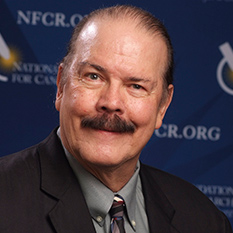Prostate Cancer
About Prostate Cancer
Other than skin cancer, prostate cancer is the most common cancer affecting American men and it’s the second leading cause of cancer deaths for men (behind lung cancer). The incidence of prostate cancer is more than 70% higher in African American men than in Caucasian men.
Prostate Cancer Key Facts
- 299,010 new prostate cancer cases are anticipated in the U.S. in 2024, with 35,250 deaths expected to result from the diagnosis.
- African American men are 1.7 times more likely to be diagnosed with prostate cancer than Caucasian men during their lifetime.
- Strongest known risk factors for prostate cancer are:
- Family history
- African ancestry
- Inherited genetic conditions such as BRCA1 and BRCA2 gene mutations and Lynch syndrome
- Smoking and excess body weight may increase the risk of aggressive and/or fatal cancer
- Having a discussion with one’s health care provider on the age to be screened with the prostate-specific antigen (PSA) blood test is advised for African American men at age 45 years and age 50 years for other men.
- Although men under the age of 40 can be diagnosed with prostate cancer, it is considered rare.
- More than 3.3 million men in the U.S. have been diagnosed with prostate cancer and are still alive today.
Source: American Cancer Society’s Cancer Facts & Figures 2024 and the Society’s website (2024)

According to the American Cancer Society, there is no sure way to prevent prostate cancer. Most of the risk factors of prostate cancer are not under control. However, there are things you can do to lower the risk of getting prostate cancer:
- Adopt a healthy diet and maintain a healthy weight
- Stay active
- Take vitamin, mineral, and other supplements
- Certain medicines
- 5-alpha reductase inhibitors
- Aspirin
For more information, visit:
How to Prevent Prostate Cancer? | Prostate Cancer Prevention | American Cancer Society
Prostate Cancer Prevention – NCI
If you have any of the symptoms below, it does not mean you have cancer but you should see your doctor or health care professional so that the cause can be found and treated, if needed.
- Problems urinating, including a slow or weak urinary stream or the need to urinate more often especially at night
- Blood in the urine or semen
- Trouble getting an erection (erectile dysfunction or ED)
- Pain in the hips, back (spine), chest (ribs), or other areas from cancer that has spread to bones
- Weakness or numbness in the legs or feet, or even loss of bladder or bowel control from cancer pressing on the spinal cord
Source: American Cancer Society’s website (2024)
- Age – after the age of 50
- Race/Ethnicity – more often in African American men
- Family history
- Inherited gene changes (variants or mutations)
- Inherited variants of the BRCA1 or BRCA2 gene
- Men with Lynch syndrome (known as hereditary non-polyposis colorectal cancer, or HNPCC)
For more information on the potential/less clear risk factors, visit Prostate Cancer Risk Factors | Risk Factors for Prostate Cancer | American Cancer Society
NFCR-Supported Researchers Working on Prostate Cancer
James P. Basilion, Ph.D.
Case Western Reserve University
Danny R. Welch, Ph.D.
University of Kansas Cancer Center
Paul Fisher, M.Ph., Ph.D.
Virginia Commonwealth University School of Medicine
Webster Cavenee, Ph.D.
Ludwig Institute for Cancer Research















